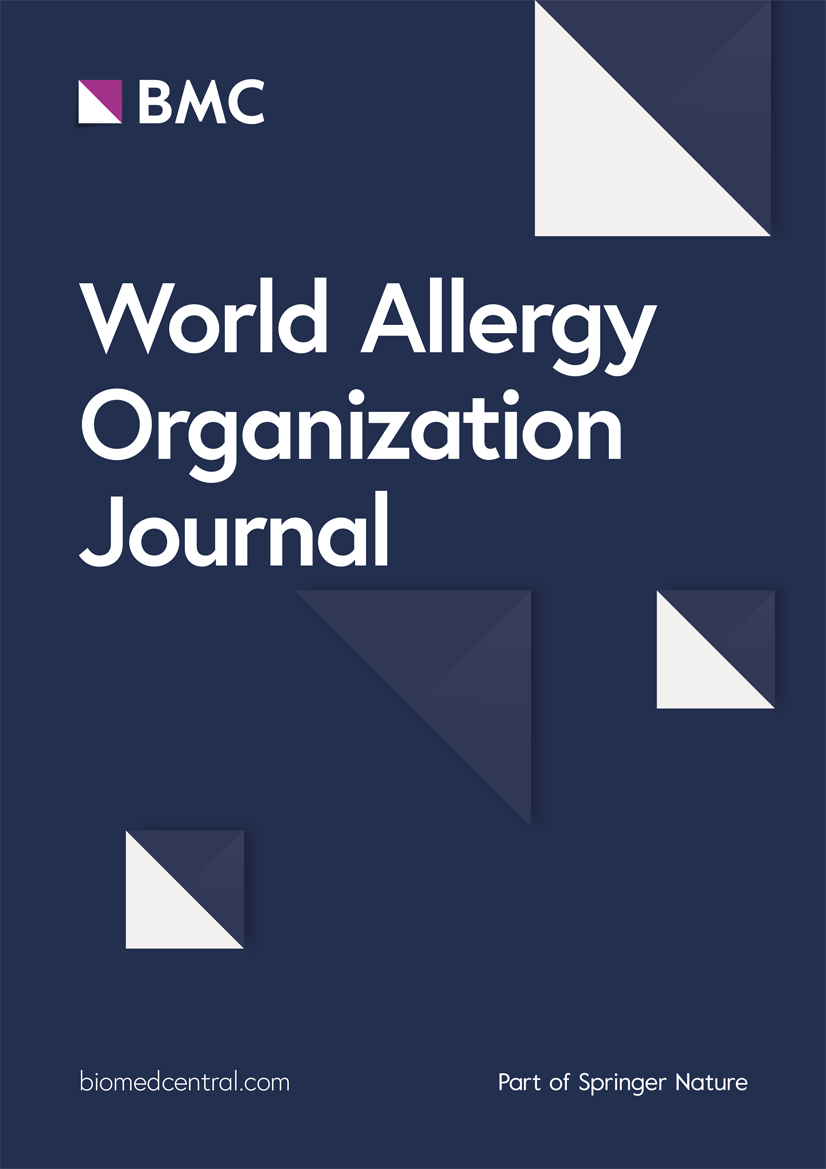Using mobile technology to increase adherence to sublingual immunotherapy: Real-world study with a new app/web platform AllergyVax®
IF 4.3
2区 医学
Q2 ALLERGY
引用次数: 0
Abstract
Allergen immunotherapy (AIT) is a key therapeutic approach for allergic rhinitis and asthma, demonstrating the ability to modify disease progression by targeting type 2 inflammation. This study evaluates the efficacy of a mobile application (app/web platform) AllergyVax®, designed to implement a patient-centered care (PCC) strategy to increase patient engagement in the treatment. A retrospective cross-sectional analysis was conducted with 482 patients diagnosed with respiratory allergic diseases who initiated sublingual immunotherapy (SLIT). Participants were divided into 2 groups: Group A received standard information, while Group B utilized the AllergyVax® app for managing treatment. This app provided daily reminders, evaluated symptom control through standardized questionnaires, and facilitated communication between patients and healthcare providers. Results indicated a significant increase in adherence rates among app users, with 92.11% adhering to SLIT compared to 46.32% in the non-app group. The app users exhibited a 2.42 times greater likelihood of maintaining adherence and reduced dropout rates by 82%. The AllergyVax® app improved adherence across all demographics, emphasizing the importance of innovative digital tools in enhancing patient engagement and treatment outcomes. In conclusion, this study highlights the critical role of mobile technology in promoting adherence to SLIT, suggesting that integrating digital solutions into AIT can lead to better management of allergic diseases and improved patient outcomes.
使用移动技术增加舌下免疫治疗的依从性:使用新的应用程序/网络平台AllergyVax®的真实世界研究
过敏原免疫疗法(AIT)是变应性鼻炎和哮喘的关键治疗方法,通过靶向2型炎症来改变疾病进展的能力。本研究评估了移动应用程序(app/web平台)AllergyVax®的疗效,该应用程序旨在实施以患者为中心的护理(PCC)策略,以提高患者对治疗的参与度。回顾性横断面分析了482例诊断为呼吸道变态反应性疾病并开始舌下免疫治疗(SLIT)的患者。参与者分为两组:A组接受标准信息,B组使用AllergyVax®应用程序管理治疗。该应用程序提供每日提醒,通过标准化问卷评估症状控制,并促进患者和医疗保健提供者之间的沟通。结果显示,应用程序用户的依从率显著增加,92.11%的人坚持使用SLIT,而非应用程序组的这一比例为46.32%。应用程序用户保持坚持的可能性增加了2.42倍,辍学率降低了82%。AllergyVax®应用程序提高了所有人群的依从性,强调了创新数字工具在提高患者参与度和治疗结果方面的重要性。总之,本研究强调了移动技术在促进遵守SLIT方面的关键作用,表明将数字解决方案整合到AIT中可以更好地管理过敏性疾病并改善患者预后。
本文章由计算机程序翻译,如有差异,请以英文原文为准。
求助全文
约1分钟内获得全文
求助全文
来源期刊

World Allergy Organization Journal
Immunology and Microbiology-Immunology
CiteScore
9.10
自引率
5.90%
发文量
91
审稿时长
9 weeks
期刊介绍:
The official pubication of the World Allergy Organization, the World Allergy Organization Journal (WAOjournal) publishes original mechanistic, translational, and clinical research on the topics of allergy, asthma, anaphylaxis, and clincial immunology, as well as reviews, guidelines, and position papers that contribute to the improvement of patient care. WAOjournal publishes research on the growth of allergy prevalence within the scope of single countries, country comparisons, and practical global issues and regulations, or threats to the allergy specialty. The Journal invites the submissions of all authors interested in publishing on current global problems in allergy, asthma, anaphylaxis, and immunology. Of particular interest are the immunological consequences of climate change and the subsequent systematic transformations in food habits and their consequences for the allergy/immunology discipline.
 求助内容:
求助内容: 应助结果提醒方式:
应助结果提醒方式:


